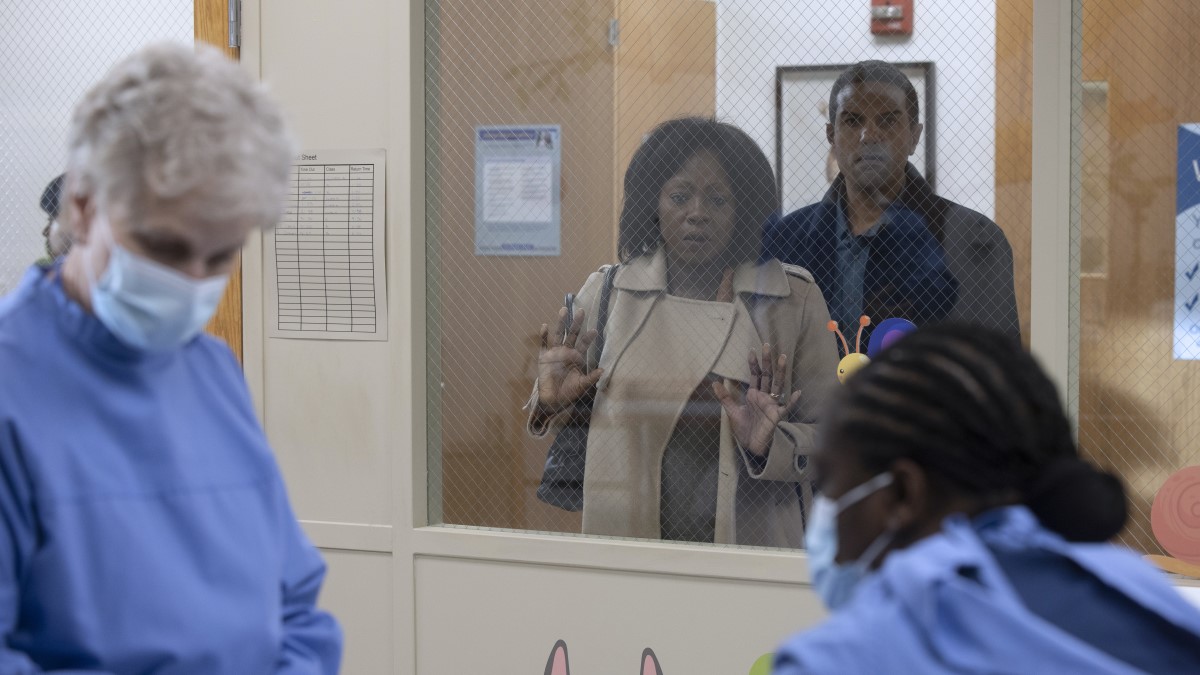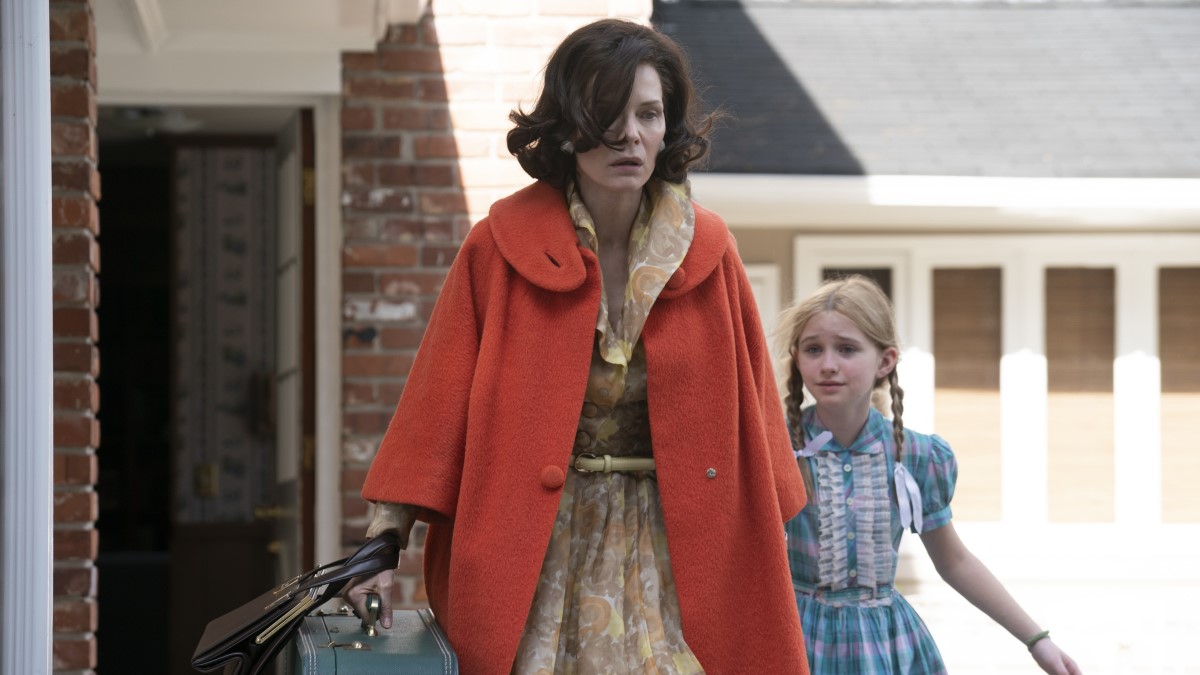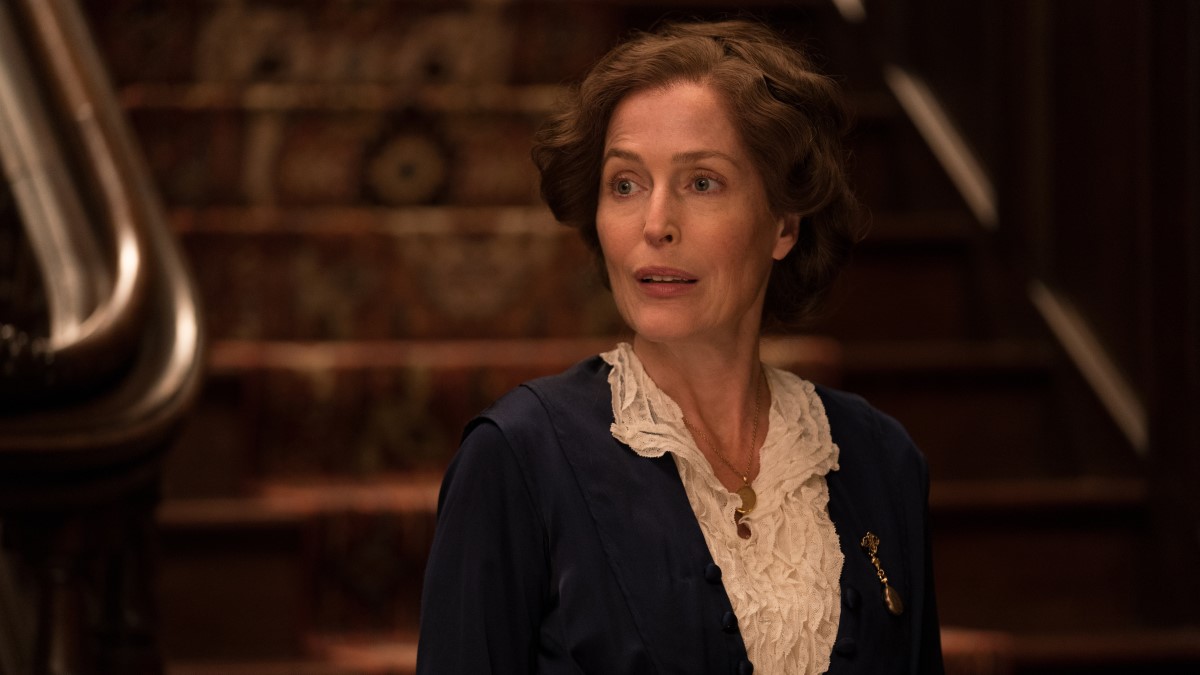What to Watch Verdict
Some of the thematic connections are vague, but there are some enlightening moments as these women find purpose.
Pros
- +
Appearance of the younger versions (particularly Michelle)
- +
The chilling introduction to Betty's addiction
- +
Eleanor's introduction to Hick and the women's salon environment
Cons
- -
Every plot twist is telegraphed
- -
Tenuous links between storylines
NOTE: This post contains spoilers for The First Lady season 1 episode 4, "Cracked Pot." Read our previous The First Lady season 1 episode 3 right here.
After last week’s detour into how each couple came to be, it seemed likely that The First Lady would return to the White House to catch up with their new role that gives the Showtime series its title. Instead, "Cracked Pot" portrays moments that would later define how these trailblazers approached their time as wives to the president. This is a broad reading of the fourth episode as some of the shared themes aren’t exactly cohesive and the connective thread is barely hanging on in place.
Yes, all three storylines call back to the younger counterparts and show how their youth informs the choices they have gone on to make. However, this notion of finding their voice only applies to Eleanor (Gillian Anderson) and Michelle (Viola Davis) in their steps to define themselves as separate from their husbands. Meanwhile, Betty’s (Michelle Pfeiffer) search for identity hits a major roadblock after being prescribed painkillers for the first time. Once again, some of these moments are more successful than others and its narrative framework still weighs down The First Lady.
At the start of the episode, the clock rolls back to 1918, when Eleanor and Franklin (Kiefer Sutherland) shared the same bed. Cutting to a flashback to the night they first slept together demonstrates that physical romance was once part of this union. The formality of the present day is explained through an act of betrayal that Eleanor cannot forgive.
Before Eleanor discovers a treasure trove of love letters not written by her hand, there are overt cues that something is awry. The overly formal farewell between Franklin and Eleanor’s personal secretary Lucy (Maria Dizzia) suggests an ongoing affair. It turns out the only adult member of this household who doesn’t know is his wife — that is until Eleanor finds the letters.
Franklin’s response is of a chastised schoolboy, while his mother, Sara (Ellen Burstyn), plays the school principal dishing out a mild rebuke. Roosevelts don’t get divorced, including the unhappy Eleanor, which is the only reason she stays in this relationship. Her only rules are he never sees Lucy again and it's separate bedrooms from now on. "What is marriage without sharing a bed?" Franklin asks. He'll soon find out.
This storyline plods along at a pedestrian pace until Eleanor realizes the power of Franklin’s name is also her name, something you would think she already knows. Suspension of disbelief aside, it does lead Eleanor to Esther Lape and Elizabeth Read’s women’s salon, which would play a significant role in her life.
The latest updates, reviews and unmissable series to watch and more!
The salon conjures a similar sense of belonging to her beloved school in England and she is giddy when telling Franklin about her night out. "They were all so singular," she says of the women she met who smoke pipes, discuss progressive ideas and are openly gay. Here, she meets Associated Press journalist Hick (Lily Rabe,) who appeared in episode 2 and is an instrumental force.

An affair helps Eleanor find her sense of purpose, but for Michelle another visit to the hospital lights a fire under her. The year is 2001 and Barack’s (O-T Fagbenle) idealism is at odds with Michelle’s pragmatism regarding work. When baby Sasha gets sick, it puts everything in perspective. They go to the same hospital where Michelle’s dad received treatment but only after an agonizing five hour wait. In contrast, the Obamas get first-rate service and Michelle’s current health insurance underscores the extent of the troubling gap.
Experiencing both ends of the healthcare spectrum gives Michelle a unique perspective that lands her a new job and working relationship with Susan Sher (Kate Mulgrew) that will stretch to the White House. Perhaps the strongest moment involves the younger Michelle (Jayme Lawson) and her mother Marian (Regina Taylor) as they sit vigil over her father’s bed. The depth of love between this family unit is impossible to ignore and there is a lived-in quality to their dynamic.
Whereas Eleanor and Michelle are carving out a space, Betty sinks deeper into listlessness. Gerry (Aaron Eckhart) is either away or on work calls and Betty has come to rely on housekeeper Clara (Patrice Johnson Chevannes). "Together but separate" is how Eleanor describes her marriage to Franklin, but in 1964 the Fords are separate but together.

A prescription for the now-banned painkiller Darvon only intensifies Betty’s feelings of isolation. An injury to her shoulder is the turning point and her doctor gladly adds sleeping pills and Valium when Darvon doesn’t take the edge off. He also tells her she is okay to mix medications and booze, which is a slippery slope Betty soon tumbles down. It is chilling how easy it is to get this many different prescriptions. In some respects, Betty does find her life’s work in this episode, but she just doesn’t know how much she will help people later in life.
Betty proves to be a free-thinking outlier among the Republican wives and she stokes their anti-feminism flames by bringing out a copy of The Feminine Mystique. These women fear a world in which men do the housework (it feels purposeful that we see Barack doing the dishes later) but Betty is falling apart in her housewife role. When it all gets too much, she grabs her young daughter and tries to take her to the beach, but luckily her sons have called Clara and their dad before she can start the car.
The end of the episode is somewhat abrupt and points to the rock bottom of Betty’s past that was alluded to previously. She might have the monogrammed shirt, the perfect looking home and family, but Betty is far from okay. More challenges lie ahead on the path to the White House — and when in residence.
Watch The First Lady on Showtime in the US and in the UK you can now stream it on Paramount Plus.
Emma Fraser spends most of her time writing about TV, fashion, and costume design; Dana Scully is the reason she loves a pantsuit. Words can also be found at Vulture, Elle, Primetimer, Collider, Little White Lies, Observer, and Girls on Tops. Emma has a Master’s in Film and Television, started a (defunct) blog that mainly focused on Mad Men in 2010, and has been getting paid to write about TV since 2015. It goes back way further as she got her big start making observations in her diary about My So-Called Life’s Angela Chase (and her style) at 14.


